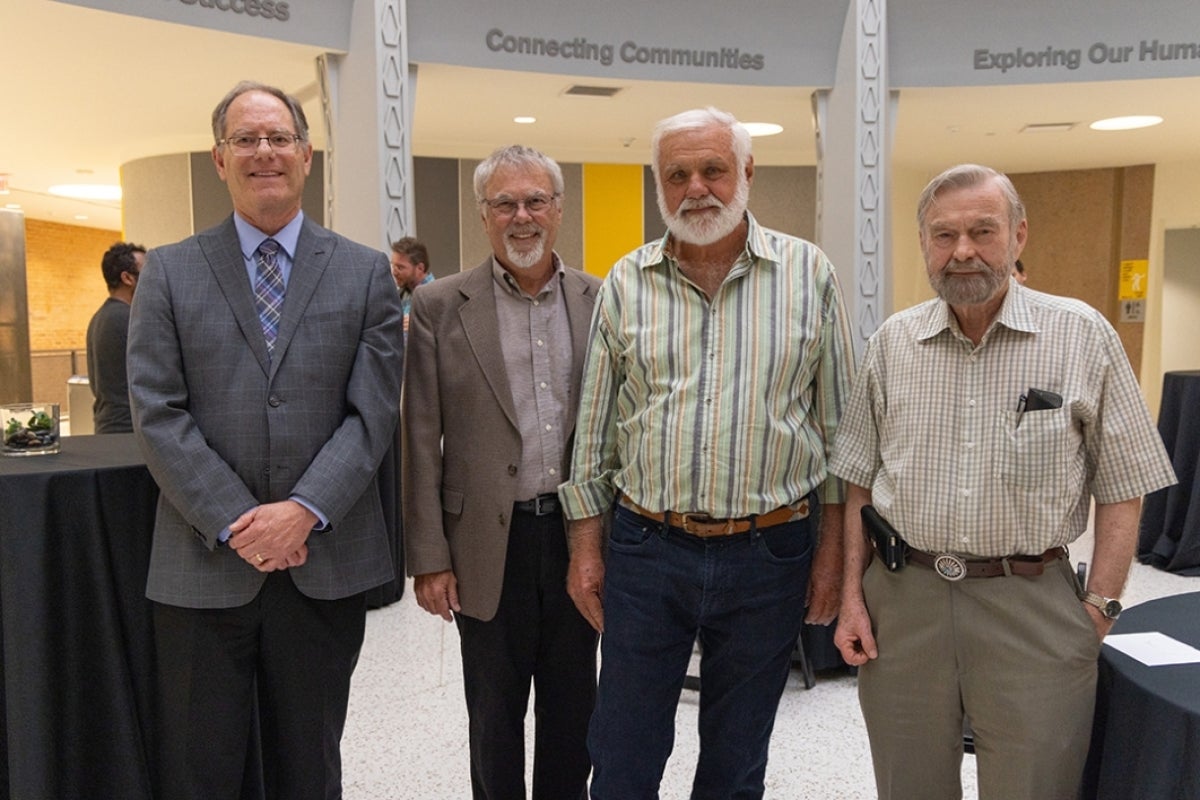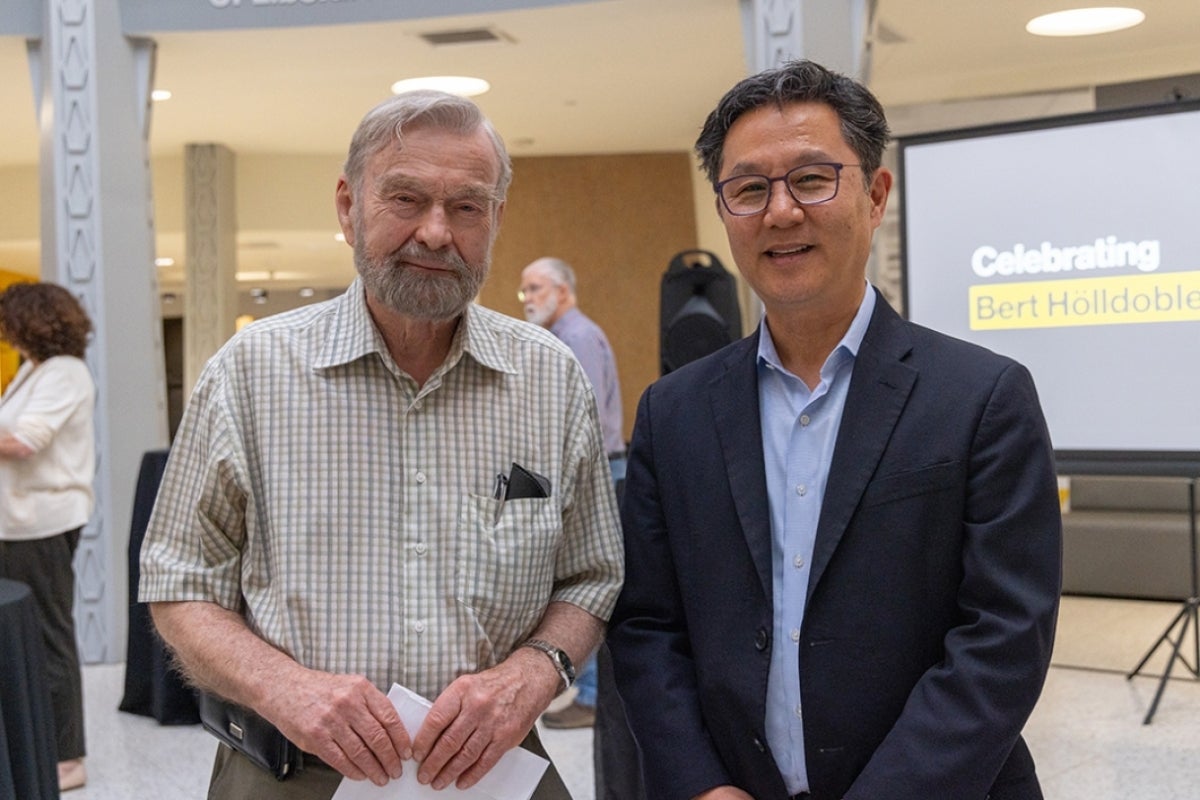The legacy of ASU's 'ant man'

Bert Hölldobler at his retirement celebration on Thursday, April 27. Photo courtesy Meghan Finnerty/ASU.
Born in Germany, Bert Hölldobler received degrees in biology and chemistry at the University of Würzburg in 1962. His doctoral thesis was on the social behavior of the male carpenter ant and their role in the organization of carpenter ant societies — and the rest is history.
Hölldobler, university professor of life sciences and a Regents and Foundation Professor in the School of Life Sciences, will retire after 19 years of service at Arizona State University, and a lifetime of service and scholarship on the dynamics of social structures and the evolution of animal societies.
Friends and colleagues celebrated Hölldobler’s work and legacy at a retirement celebration on Thursday, April 27.
Along with over 300 peer-reviewed manuscripts and several books, his co-authored work “The Ants” won the 1991 Pulitzer Prize in general nonfiction. His research was the subject of the documentary film “Ants — Nature's Secret Power,” which won the 2005 Jackson Hole Wildlife Film Festival Special Jury Prize. His recent co-authored work "The Guests of Ants: How Myrmecophiles Interact With Their Hosts" was named a finalist for the 2023 PROSE Awards.
Hölldobler taught at the University of Frankfurt, Harvard and Cornell before joining the School of Life Sciences at ASU in 2004.
During his time at ASU, he received the 2016 Lorenz Oken Medal, the highest recognition bestowed by the German Association for the Advancement of Science and Medicine, in recognition of his ability to talk about his life’s passion and foster a public dialogue around science.
“Without communication there is no cooperation or division of labor in any social system, be it a society of genes, organelles, cells or organisms,” Hölldobler said, commenting on the award. “My work is to disentangle the complex communication system in ant societies and through that discover and share much about ourselves.”
In 2019, Hölldobler earned the German Entomological Society’s most prestigious award, the Fabricius Medal. The award recognized his "outstanding scientific contributions in the field of behavioral physiology and sociobiology, in particular his pioneering work to our understanding of the behavioral ecology and social behavior of ants.”
Hölldobler and Provost Emeritus Robert E. Page founded ASU’s Social Insect Research Group, an internationally acclaimed research group that studies the evolution and organization of insect societies, and the Center for Social Dynamics and Complexity. In 2021, he was appointed as the inaugural Robert A. Johnson Chair in Social Insect Research at ASU.
“I have been lucky in my life and career to know Bert Hölldobler as a close friend and as a colleague,” Page said. “As a friend, he has been generous, committed and supportive. As a colleague, he has inspired me in so many ways as a model scientist, mentor, disciplinary pathfinder, academic program builder and a true celebrity scientist.”
Hölldobler is a member of the American Academy of Arts and Sciences, the National Academy of Sciences and the American Philosophical Society, among several other prestigious academic associations.
“ASU has been incredibly fortunate to have Bert Hölldobler as a part of our community for 19 years,” said Kenro Kusumi, dean of natural sciences at The College of Liberal Arts and Sciences. “His research, teaching and public outreach will leave a lasting impact on our university, especially how studying the organization of insect societies can help us explore social evolution, superorganisms, behavioral ecology and much more.”
More Science and technology

Hack like you 'meme' it
What do pepperoni pizza, cat memes and an online dojo have in common?It turns out, these are all essential elements of a great…

ASU professor breeds new tomato variety, the 'Desert Dew'
In an era defined by climate volatility and resource scarcity, researchers are developing crops that can survive — and thrive —…

Science meets play: ASU researcher makes developmental science hands-on for families
On a Friday morning at the Edna Vihel Arts Center in Tempe, toddlers dip paint brushes into bright colors, decorating paper…





